Year 7, Year 8 and Year 9
Our Key Stage 3 students enjoy a broad and engaging curriculum that prepares them for future specialisations at GCSE level.

Entry Requirements
Entry Requirements Year 7
Entry Requirements: At least 6 years of schooling, plus a school report.
Age: 11-12 yrs (Student must be 11 yrs old before they start of the course)
Language Requirements: IELTS 3.5
Start Date: September
Average Class Size: 12
Entry Requirements Year 8
Entry Requirements: At least 7 years of schooling, plus a school report.
Age: 12-13 yrs
Language Requirements: IELTS 4.0
Start Date: September
Average Class Size: 12
Entry Requirements Year 9
Entry Requirements: At least 9 years of schooling and a good school report.
Age: 13-14 yrs
Language Requirements: IELTS 4.5
Start Date: September
Average Class Size: 12
Key Stage 3 Curriculum
At Key Stage 3, students enjoy an innovative and challenging curriculum designed to build every student’s comprehensive knowledge and develop their character virtues. Students are motivated and supported to employ their learning creatively and flexibly as they strive for academic excellence. Our broad curriculum creates a strong academic foundation, instils academic skills and sparks their curiosity in preparation for future specialisations in Year 10 and Year 11 (GCSE). At Year 9, business studies and social sciences are introduced to expand students’ knowledge and increase their options at GCSE and beyond.
Taught by highly qualified academics, students are well prepared for the rigorous examinations ahead as well as for entrance to top universities and subsequent career opportunities. Our students start their GCSEs with strong research, presentation and communication skills developed through guided and independent learning activities.
Our aim is to develop confident, independent learners with strong personal values and self-belief, who realise their full potential. Beyond academic learning, students are encouraged to engage in learning that builds a well-rounded skill set. Within weekly Drama lessons, students are prepared for the LAMDA exams, which develop their confidence in communication and public speaking. Weekly PE lessons offer opportunities to learn rugby, tennis and many more sports. In addition, there are a range of sports and exercise clubs to join. Students have daily personal tutor sessions as well as weekly PSHE lessons to support their wellbeing and underpin their social and emotional learning.
Enrichment Curriculum
Year 7 and 8 students participate in weekly learning opportunities beyond the classroom through our Enrichment Curriculum. Students can select from a wide variety of in and out of school activities, pursuing personal and career interests. Potential activities will vary termly, but may include rock climbing, culinary arts and entrepreneurship. Some activities may incur an additional cost.
Students can also participate in our daily after school co-curricular programme, which encourages students to nurture their talents, deepen their academic knowledge and broaden their career horizons. More information about our co-curricular programme is available here.
Subject List
Our diverse and innovative curriculum has been expertly devised to meet our young students learning needs. A variety of age-appropriate texts are chosen for close study, to stimulate discussions, introduce new concepts and challenge and stretch students’ skills in reading, writing, speaking and listening. Our curriculum explores fictional prose, drama, poetry and non-fiction texts and provides opportunities for creative, transactional and functional writing practice. Our KS3 English curriculum aligns with the National Curriculum for English, thereby allowing for a smooth transition into the GCSE courses in KS4.
In Years 7, 8 and 9, our curriculum covers number, algebra, geometry, ratio and proportion, statistics, and probability topics in detail. This allows for seamless progression into GCSE in years 10 and 11. Students will have the opportunity to take part in the junior and intermediate UK maths challenges and any follow-on competitions as well as the CATS inter-schools competition. We plan to offer UK maths challenge preparation as an extra-curricular activity and to arrange a trip in conjunction with other departments to visit Bletchley Park, pivotal in deciphering the Enigma code in World War II, where students will be able to take part in a code-breaking activity. There may also be an opportunity for STEM educational visit to theme park including a fun day out on rides, but this normally depends on student numbers. We also plan for students to work in teams on projects outside the classroom environment to explore Maths in real world.
Pupils will:
- Use a range of techniques to record their observations in sketchbooks or folders and other media as a basis for exploring their ideas
- Use a range of techniques and media.
increase their proficiency in the handling of different materials - Analyse and evaluate their own work, and that of others, in order to strengthen the visual impact or applications of their work
- Learn about the history of art, craft, design and architecture, including periods, styles and major movements from ancient times up to the present day.
Key Stage 3 Art and Design is delivered through carefully planned projects building on prior knowledge, understanding and skills enabling pupils to progress throughout this Key Stage; to then continue on into key stage 4 with the technical knowledge and experiences for them to undertake Arts Awards and GCSEs if appropriate.
We constantly interact with computers. Never more so than when attached to our phones. How did we get here? What are computers really capable of? Computing in KS3 looks at areas such as software applications, hardware, programming, computer logic, networking, cyber security. Learn how to make the machines work for you and prepare yourself to work with Artificial Intelligence, Virtual Reality and any new technology created in your future.
At Key Stage 3, students are provided opportunities to explore different styles of theatre, play scripts and theatrical techniques. Creativity is encouraged with students supported to develop and perform their own ideas. All students are prepared for LAMDA exams, which develop confidence with public speaking skills, presentation skills and communication skills.
Learning about people and other cultures is at the forefront of geography at Bosworth School. Our diverse classroom allows students to be open and have an understanding of each other and an ability to empathise with the situation of others. Everything in life is geographical, people, place, industry, hazards, GIS and global issues. Our fieldwork opportunities at KS3 include investigating river processes and urban design. Learning about current issues in our world and the ways in which we can care for our planet are preparing our students for the 21st Century.
Our KS3 History curriculum has been designed to be equally diverse, engaging and challenging, in order to prepare our students to become critical thinkers.
Students will be encouraged to develop their historical understanding by using chronology skills and sequencing. Second order historical concepts such as continuity and change, cause and consequence and similarity and difference, will be developed by studying sources and interpretations. Literacy will be developed by defining and deploying subject specific vocabulary and by learning how to use evidence in their own explanations.
Our young historians will cover a broad spectrum of topics from the Norman invasion to life in the modern world. Students will also undertake a local history project, focusing on the rich shoe-making heritage of Northampton, and will also undertake an historical research project of their own choosing.
History as a subject has never been more important to study than right now, and we hope our engaging course prepares students to become critical thinkers, with a passion for making links between the past and present.
Speaking a second language has many advantages from making international travel easier to career advantages. Our students learn both Spanish and French in Year 7 and 8, developing confidence in each. In Year 9, they can choose to continue to study both languages or select their preferred language. At the KS3 level, language learning involves studying familiar topics such as school the family and good to develop a strong foundation of the language. Students also learning about the culture and geography of France and Spain as well as exploring music and films from both countries.
At Bosworth, we believe music has a fundamentally important place and role throughout the curriculum and wider school for all our students, across all the key stages – starting with Year 7 and moving through to Year 13. Music at KS3 is taught through practice and theory. Our music lessons are underpinned and driven by a strong focus on learning in and through music, not solely about music. KS3 music will help students develop their imagination and creativity, building on students’ knowledge, skills and understanding. Students arrive at Bosworth with a lifetime of musical experiences – which are both practical and experimental. We therefore start their musical education assuming they will know something and have some musical experiences – however limited.
Our music teachers are the architects of the music curriculum and responsibility lies with them to create an exciting, inspiring Programme of Study from years 7-9 that will be right for the student. Our strong music curriculum will also lead seamlessly to inclusive extra and extended curricula music making, which will be central to the life of the dynamic music department and school community.
Our music Programme is not ‘static’ – it will reflect and respond to the changing times in which we live. Our music teachers will strive to ensure the teaching is relevant to the cohort and builds on what the students have done previously, with a keen eye on what the students also do beyond the classroom. Our music curriculum will look and sound very different from that other schools – but that’s exactly how we want it to be!
Key Stage 3 is the starting point for learning science. For many students, this will be the first time they learn that Science is made up of three separate subjects: Biology, Chemistry and Physics. In Biology, students will learn about cells; the building blocks of living organisms and how these work together to create complex organisms and how they interact with the world around them. In Chemistry, students learn about the different elements that make up everything around us, how they react together to form new chemicals and how Humans can make use of the different substances we can produce. Physics is the study of matter, energy and forces and students will learn about concepts such as electricity, magnetism, light and sound. At Bosworth School we follow the Exploring Science International curriculum, which makes the study of science exciting and interesting by linking what they learn in lessons to the real-world around them. Science is a hands-on practical subject, and students are taught by specialist teachers in purpose-built science laboratories; practical work is an important part of learning science so students will be taking part in lots of practical’s!
PSHE (Personal, Social, Health and Economic) is an important subject that supports students to develop the knowledge and skills to be healthy, safe and successful. In Key Stage 3, the PSHE curriculum is delivered through daily personal tutor sessions and a weekly PSHE lesson.
Physical Education (PE) is studied by all students in KS3. Our aim is to create a love for physical education by enabling students to experience a variety of activities that broaden their sporting experiences and embed technique, tactical and strategic skills. Activities are taught on a rotational basis determined by the sporting seasons with football, rugby, cricket, tennis and athletics as well as dance and gymnastics offered. Students have opportunities to participate in inter-school competitions, developing their sportsmanship, resilience and confidence whilst enjoying the thrills of competition. PE at Bosworth is competitive, creative and challenging, supporting students to have fun whilst learning new skills.
English as a Foreign Language helps develop all the essential English skills in listening, reading, writing and speaking. Students develop knowledge and confidence in speaking about topics such as health and wellbeing, the environment, home, education, social media and the news. Students also develop their analytical skills, looking at poetry through the ages and texts, such as Midsummer Night’s Dream and Blood Brothers. Students are also prepared the Cambridge Suite English exams, specifically the KEY and PET tests.
Additional Subjects in Year 9
Business Studies examines how businesses operate and function in a variety of countries in a global, modern economy. At Year 9, students develop a broad understanding of how businesses are started and run, including the personal and professional qualities of successful entrepreneurs. A combination of academic and practical learning opportunities enable students to understand both how businesses form, operate and succeed, but also prepare them for Business Studies at GCSE level.
Our Social Science curriculum offers a broad introduction to both Sociology and Psychology as academic disciplines. Students are able to explore both subjects, helping them to decide if they wish to pursue either or both at GCSE or beyond. Sociology is the study of society and how individuals are influenced by social norms and pressures. Psychology is the study of the human mind and behaviour, exploring how, why and why humans think, feel and behave as they do. In the Sociology component, students learn the core sociological theories and principles as well as develop an understanding of sociological research methods, which helps them begin to understand how society influences an individual’s behaviour, identity and experiences. In the Psychology component, students also develop an understanding of the key theories and methods of psychology research. Students learn how psychologists think about human behaviour and how experiences can affect behaviour and feeling. Students develop a broad understanding of how humans and society work and the relationships between social expectations, individual and collective experiences and human behaviour, which can be useful to further study in humanities, social sciences and the sciences.








